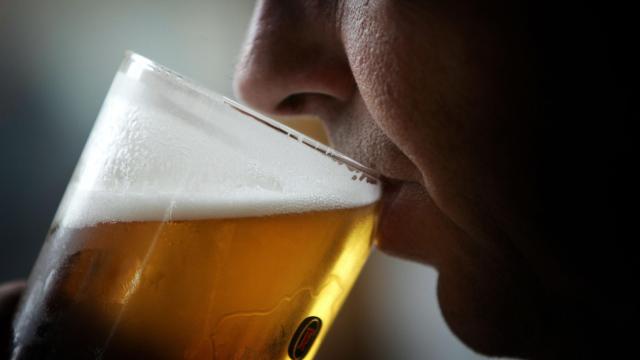New research this week is the latest to find that alcohol use is a major cancer risk, one that people aren’t necessarily too aware of. The study estimated that over 700,000 cases of cancer worldwide can be attributed to alcohol annually.
The research, published in Lancet Oncology, was conducted by scientists in North America, Europe, and Africa. It’s meant to be an update to previous estimates of the cancer burden linked to alcohol use.
For this study, the authors focused on cancers where past research has regularly found a strong link between alcohol use and later cancer risk, such as liver cancer. But it often takes time between exposure to something cancer-causing and a cancer linked to it to become noticeable. So for their calculations, the group relied on estimates of alcohol use across the world in 2010 and assumed an average 10-year latency period. Then they used country-specific estimates of how many cases of cancer would be expected in 2020 and calculated how many of these cases were likely to be alcohol-related, based on the level of alcohol use reported a decade ago and type of cancer reported. In 2020, they estimated, there were 741,300 new cancer cases caused by alcohol, accounting for 4.1% of cancer cases in general.
Of these cases, about three-quarters occurred in men. The most common alcohol-related cancers involved the esophagus, liver, and breast. And the highest proportion of alcohol related cancers, relative to cancer cases in a given area, were found in eastern Asia as well as central and eastern Europe, while the lowest proportion of cases were found in northern Africa. In the U.S., 3% of cancer cases were attributed to alcohol, or around 53,000 cases last year.
The greatest health risks of alcohol come from heavy drinking. But many studies have recently highlighted that even light to moderate drinking comes with its costs, and this new research is no exception. The authors estimated that light to moderate drinking alone, defined here as one to two drinks per day, contributed to more than 100,000 cases of cancer in 2020.
It might seem obvious to many that alcohol isn’t great healthwise, though some experts continue to argue that the risks of drinking shouldn’t be overstated, particularly for light to moderate drinking. But there does appear to be a wide gap in the recognition of alcohol specifically being a carcinogen. A recent survey of UK residents in 2018, for instance, found that only 10% knew that alcohol caused cancer.
While alcohol consumption has actually fallen in many places in recent years, the study’s authors argue that their research shows that more needs to be done to reduce the impact it’s having on our global health.
“Our findings highlight the need for effective policy and interventions to increase awareness of cancer risks associated with alcohol use and decrease overall alcohol consumption to prevent the burden of alcohol-attributable cancers,” they wrote.
